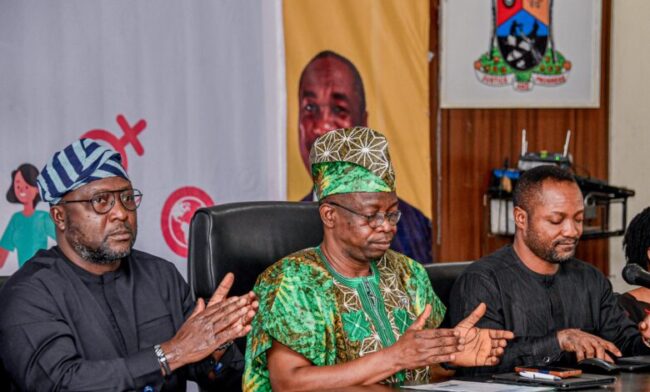Lagos, UN Women partner to break gender inclusivity barriers
CHIGOZIE AMADI
The Lagos State Government in collaboration with United Nations, UN Women is poised to address imbalances that have marginalized women entrepreneurs from accessing public procurement opportunities in the State.
Speaking at a Media Forum on Affirmative Public Procurement, Director-General Lagos State Public Procurement Agency, Mr Fatai Onafowote stated that the UN Women’s initiative aligned with the state government on gender responsive policy.
The DG said, “Our journey toward this historic initiative has been greatly supported by UN Women, the global leader in championing gender equality and the empowerment of women. Their collaboration with the Lagos State Government has brought international best practices to the forefront of our policy-making process, and for that, we are deeply grateful.
“The Gender Responsive Procurement Policy we are discussing today is not just a document; it is a pioneering effort to correct the long-standing imbalances that have marginalized women entrepreneurs from accessing public procurement opportunities. For far too long, Women-Owned Businesses and Women-Led Cooperatives have faced significant challenges—ranging from limited access to finance and information to capacity constraints—that have prevented them from participating fully in our state’s economic activities.
“This policy is our commitment to dismantling those barriers and creating a more equitable and inclusive procurement environment. Through capacity-building programmes, financial incentives, educational resources, and mentorship opportunities, we aim to enhance the abilities and market presence of women-owned businesses, ensuring they can compete effectively for public contracts.
“The objectives of this policy are clear: to provide greater access to procurement opportunities for women, to equip them with the necessary skills and knowledge, and to create a procurement environment that values and promotes gender equity. By doing so, we are not only empowering women but also contributing to the broader socio-economic progress of Lagos State.
“The benefits of this policy extend beyond the economic empowerment of women. By unlocking the potential of women entrepreneurs, we are driving broader economic growth and development within our state. This aligns perfectly with our commitment to social equity and inclusion, as well as with national and international frameworks, including the United Nations Sustainable Development Goals.”
Onafowote cited the Executive Order mandating that all Ministries, Departments, and Agencies, MDAs by the State government prioritizing women-owned businesses in the awarding of contracts as a good example for addressing gender imbalances in the State.
He noted, “This directive will ensure that at least 10percent of procurement opportunities are allocated to such enterprises, within financial thresholds suited for SMEs. This is not just a policy; it is a mandate for change—a mandate to improve the internal management of our state government and to foster a more inclusive economy.
“Today’s forum is a key part of our broader collaboration with UN Women, focused on Affirmative Procurement to empower women-owned and women-led businesses in Lagos State. I am confident that this forum will serve as a valuable platform to discuss and promote the objectives of this significant policy.”
Representative of UN Women, Mr Anthony Abu lauded the Lagos State Government’s policy on procurement, saying the agency has achieved much within a short time.
“Your leadership has helped to achieve some of our goals. The agency cannot thrive without the support of government. We thank the state governor, Mr. Babajide Sanwo-Olu for the support
“Our aim is to continue to work with Government of Nigeria to better the standard of living of the women. Women should be part of the decision making process on the issues that affect them.”
Special Adviser to the Governor on Media and Publicity, Mr Gboyega Akosile said, “Women are the unsung heads of the families, noting “It didn’t take Mr Governor anything to approve the gender responsive procurement policy. The agency has full support of the governor on this initiative.”
Akosile noted the situation whereby 80 percent of contracts are awarded to men as opposed to womenfolk getting 20 percent was inimical, stating “this is an imbalance that must be addressed.”
He therefore enjoined more women to come forward and bid for more contracts in the State to promote gender inclusivity in line with the Governor’s THEMES+ agenda.
























